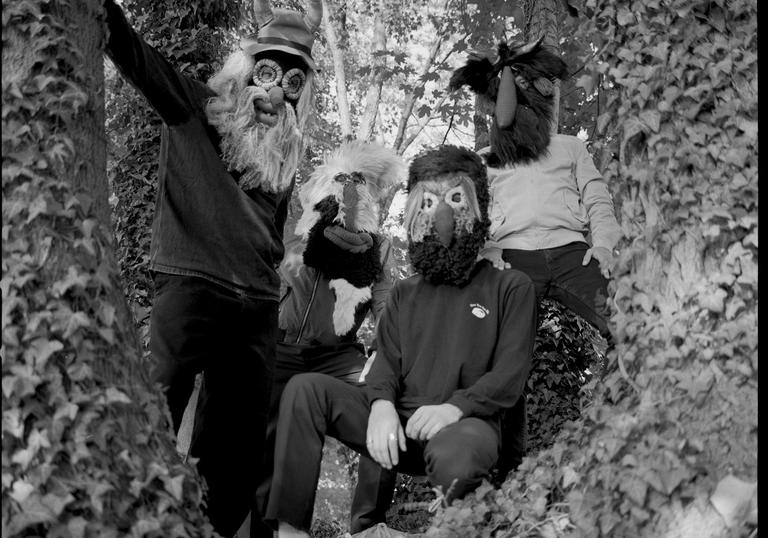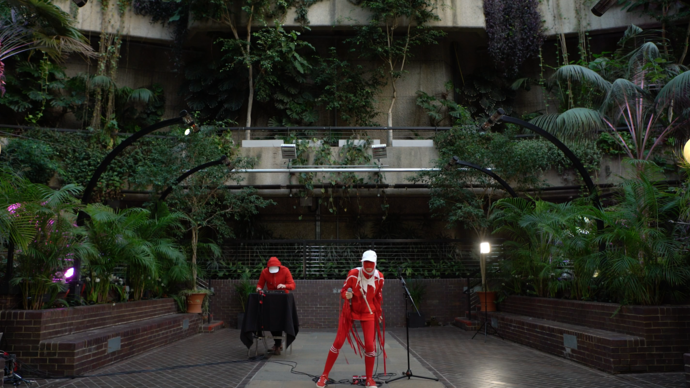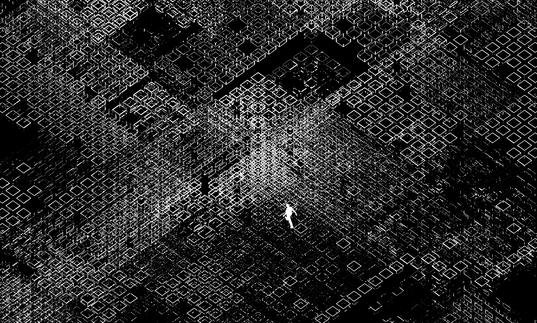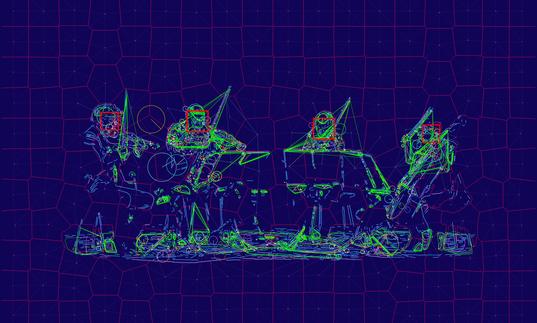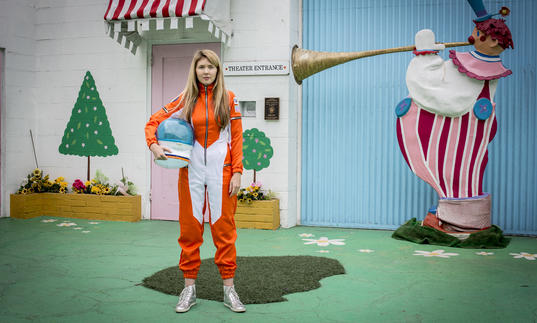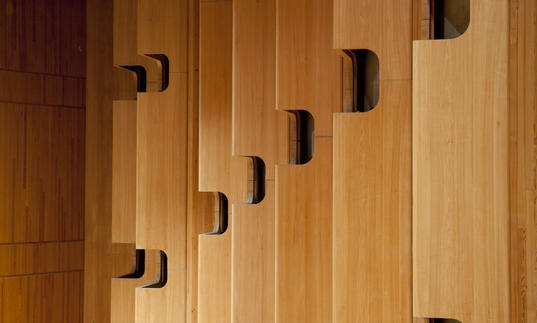There are few spaces where a German musician specialising in adventurous and increasingly conceptual techno crosses paths with a 19th century German mathematician, current authors of studies in the communicative behaviour of flora and a 12th century Persian Sufi philosopher.
It’s also very timely, as the subject of communication between trees is increasing in both scientific and media fronts. Yet, for the man otherwise known as Hendrik Weber, the genesis of Conference of Trees began two decades ago, in his home town of Baunatal, Central Germany, surrounded by deep forest. ‘I’ve been fascinated by trees since I was about nine, going into the forest, inventing adventures and building huts,’ he recalls. ‘But as you grow older, you start to move away from this sense of completeness. For me, I was hunting more for music and playing in bands, skateboarding and skiing.’
It’s on his own, as Pantha Du Prince (‘a fantasy character...a poetic transporter for the concept behind the music’) that Weber has carved a niche for a style of techno he calls, ‘layered and cinematographic.’ He released the Diamond Daze (2004) and This Bliss (2007) albums on Berlin dance label Dial before signing to Rough Trade and widening his audience with Black Noise (2010) and Elements of Light (2013).
The last of these was a collaboration with Norwegian percussion ensemble The Bell Laboratory, after Weber had discovered the carillon, an organ-style instrument consisting of 23 bells while recording Black Noise in the Swiss mountains. The collaboration branched out in 2014 to perform Terry Riley’s minimalist masterpiece In C at the Barbican, after which Weber persisted with more humanistic, collaborative work. His 2016 album The Triad featured vocals and studio musicians for the first time, ‘It’s a human touch — something soulful and more connected to a social environment,’ he said at the time. ‘I wanted to cut through the digital dust that surrounds us.’
Now Weber has forged his most ambitious project yet, spanning biology, anthropology and technology, driven by what he calls, ‘a longing for this connection I once had to nature, and this indigenous knowledge that we all share’. Weber committed to research far more than most musicians would; not only returning to his childhood haunts in Baunatal, and forests in France, Switzerland and the US, to take long walks (and shoot footage that forms part of tonight’s visual accompaniment), but tapping into fonts of expert knowledge such as Fred Hagender, a fundamental researcher on ethnographic botanics who wrote the book The Spirit of Trees. He talked to Professor Frantisek Baluška at the University of Bonn, who had written widely about plant behaviour and read Dr. Erwin Thoma’s A Future with Natural Wood: Traditional & Scientific Facts about Trees. He read Peter Wohlleben’s books The Secret Language of Trees and The Hidden Life of Trees and followed Suzanne Simards’s research on how trees talk to one another. Weber also investigated mathematician Georg Friedrich Bernhard Riemann, a peer of Einstein’s who wrote equations relating to the construction of space.
‘My first idea about trees was that they map out space with their communication,’ Weber explains. ‘Trees remain in one spot, but they interact over vast distances through mycorrhizal networks. They don’t have human knowledge of technology but they still manage to create their own cooperative space and form vast conscious networks within this space.’
Yet it was Sufi mystic Farid ud Din Attar’s The Conference Of Birds that provided the ‘ignition point’ for Conference of Trees: ‘I imagined how trees are dancing with each other through time, intertwined and exchanging information, and that’s what this group of musicians will do.’
Weber’s stage collaborators tonight are Bell Laboratory members Bendik Hovik Kjeldsberg and Håkon Stene, Manuel Chittka, drummer of the German band Messer, and jazz musician Friedrich Paravicini. They will play an enticing array of instruments, including the Ondes Martinot, marimba, Russian singing bells and log drums from the Basque region, ‘to connect with the shamanic tradition of connecting with the wisdom of nature, when trees were holy oracles in the days before temples or churches.’
Weber – who learnt carpentry in his early twenties – will also feature handmade wooden instruments, with assistance from craftsmen in India and Mexico. ‘I wanted to get close to the process without the abstraction of science, to become what you want to say, to become the tree itself,’ he suggests. ‘For example, we asked our cellist, “play your favourite tree” (which was the oak), so how would an oak sound? As Trees of forests we wanted to form a cooperative supportive system to empower the musicians to play their part.’
This will be the second performance of Conference of Trees, after its debut last August at Hamburg's Kampnagel International Summer Festival, though Weber is premiering two new pieces tonight. It promises to be a special occasion.
Weber isn’t the first musician to be so inspired – in 1974, Stevie Wonder named his album Journey Through “The Secret Life Of Plants” (after Peter Tompkins and Christopher Bird’s book of the same name) - but in concept, instrumentation and musical notation (such as incorporating patterns of bio-electric energy), he is surely the first to give trees a voice.
+ Support from Leifur James
Commissioned by International Summer Festival, Kampnagel, Hamburg.
Co-commissioned by Münchner Kammerspiele, Barbican, Schauspielhaus Bochum
Supported by the Goethe-Institut London
